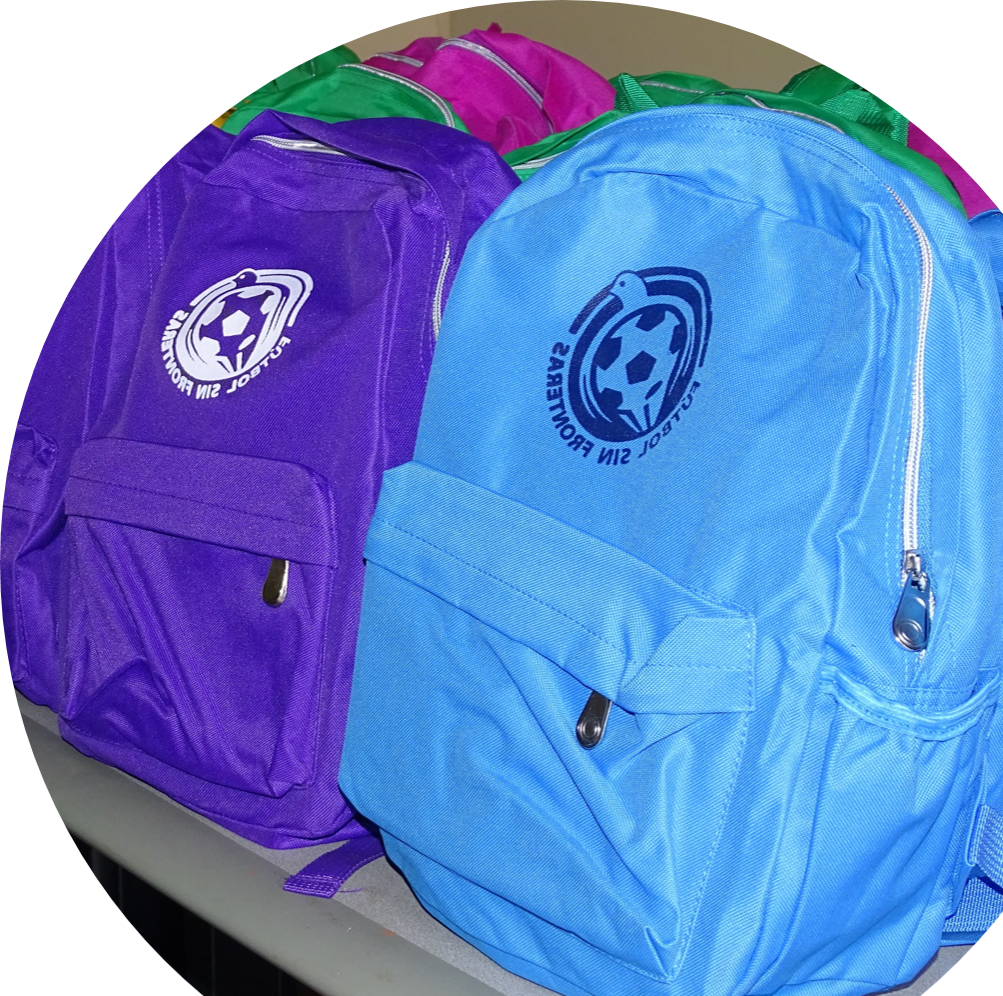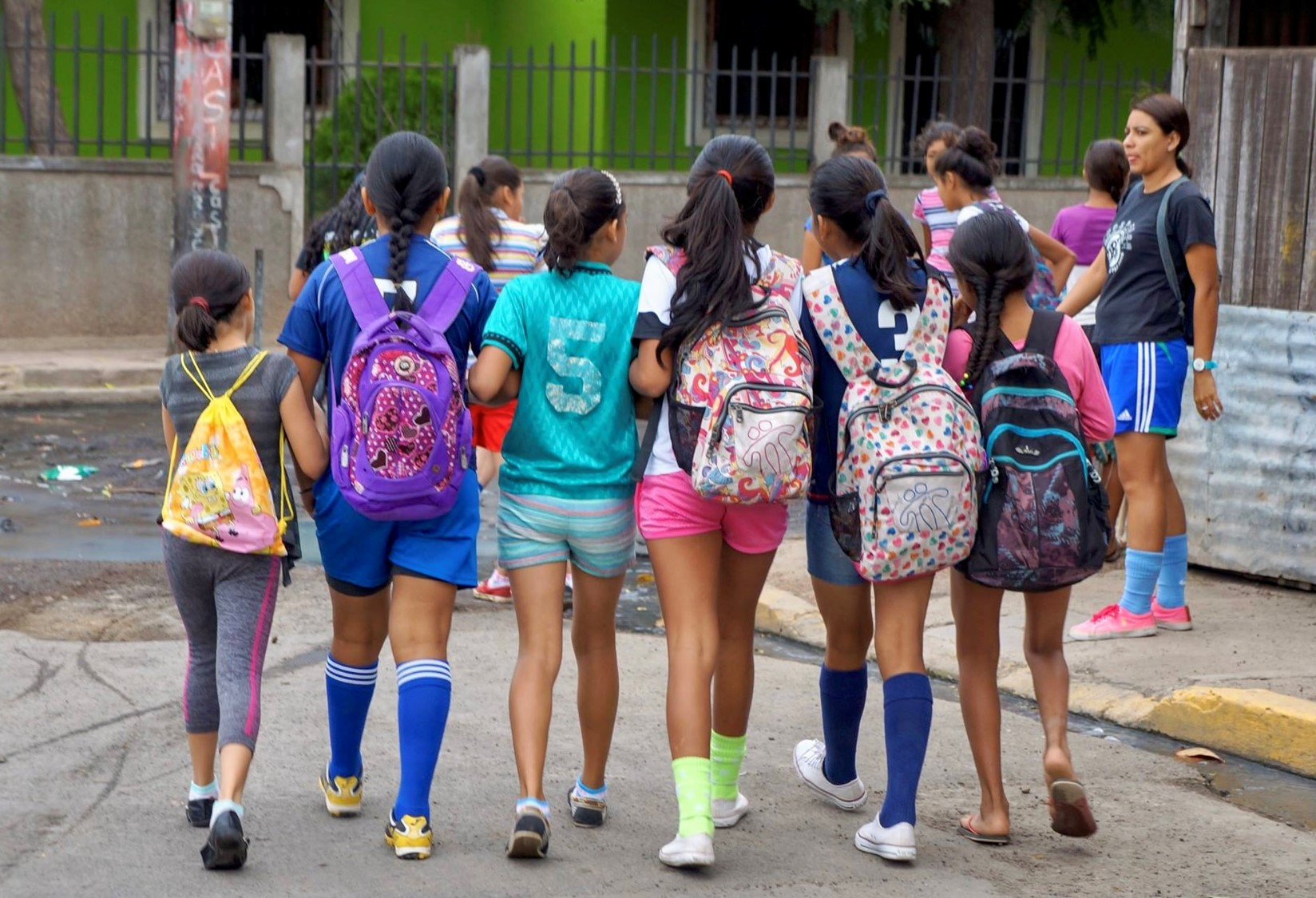
Mission
Soccer Without Borders’ mission is to use soccer as a vehicle for positive change, providing underserved youth with a toolkit to overcome obstacles to growth, inclusion, and personal success.
Life Challenges of the Women Served
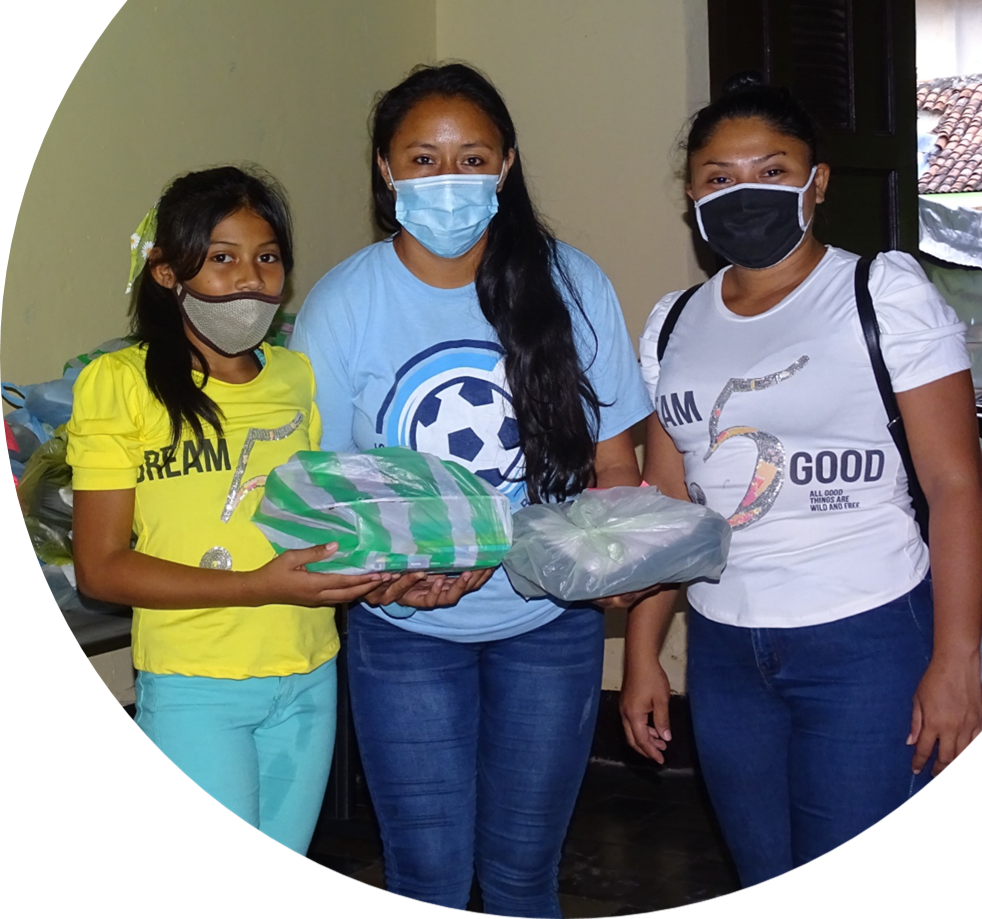 Nicaragua is in a state of compounding crises. A string of protests in 2018 led the country to the brink of Civil War. Economic sanctions due to human rights abuses, followed by the collapse of tourism have devastated the economy, and the pandemic has added another layer of isolation, uncertainty, and loss. In a culture rooted in machismo, girls in Nicaragua face tremendous barriers to success: 28 percent are pregnant by age 18 (the highest rate of teen pregnancy in Latin America) and 52 percent do not complete primary school. Due to these crises, many of the resources available for girls have diminished, leaving girls farther behind.
Nicaragua is in a state of compounding crises. A string of protests in 2018 led the country to the brink of Civil War. Economic sanctions due to human rights abuses, followed by the collapse of tourism have devastated the economy, and the pandemic has added another layer of isolation, uncertainty, and loss. In a culture rooted in machismo, girls in Nicaragua face tremendous barriers to success: 28 percent are pregnant by age 18 (the highest rate of teen pregnancy in Latin America) and 52 percent do not complete primary school. Due to these crises, many of the resources available for girls have diminished, leaving girls farther behind.
Prior to the 2018 crisis, Nicaragua was already the second poorest country in the Western Hemisphere and it continues to hold that position according to the World Population Review. It is estimated that 75 percent of the workforce participates in the informal economy, lacking access to benefits such as healthcare and social security. McKinsey research reports that women’s participation in the workforce could increase GDP in Latin America by $2.6 trillion, yet women are more likely to be illiterate, less likely to complete secondary education, have more domestic responsibilities, are less likely to have a bank account, and lack workforce protections.
These challenges paint a picture of the impacts of poverty in a nation filled with creativity and potential. These challenges must be addressed at the intersection of health, culture, and education, with a focus on a new generation of girls ready to be the change.
The Project
The goal of this project is to facilitate positive school outcomes through a system of financial, academic, and socio-emotional support that empowers girls to overcome barriers to success.
There are many factors that cause girls in Nicaragua to drop out of school, including domestic responsibilities in the home, a financial need to work in the market/informal economy, unplanned pregnancy, and a lack of visible pathways and encouragement for women to enter the workforce and pursue a career. Public school in Nicaragua is not free. There are required uniforms for school and gym class, required school supplies, and matriculation fees each year. Public schools are also overpopulated and under-staffed, meaning that quality education is more often found in private schools, which have even higher costs.
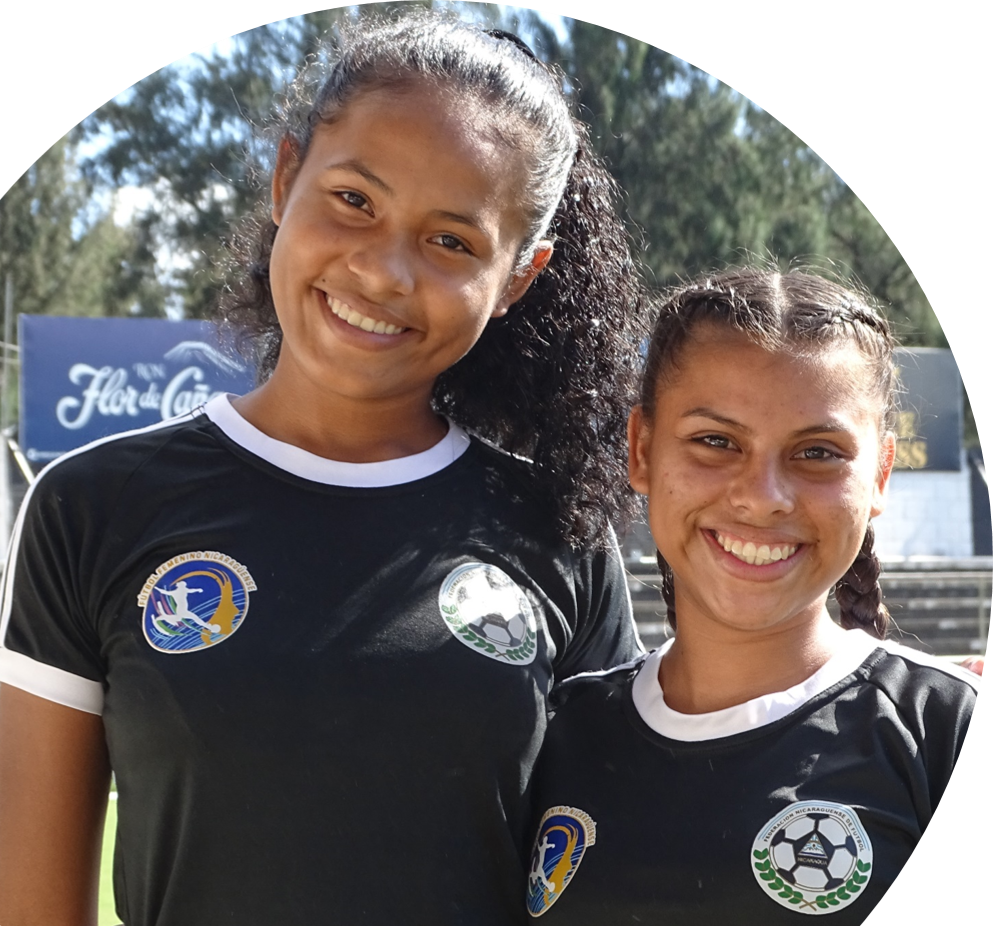 SWB Nicaragua addresses these barriers one by one, providing school scholarships (including all supplies and uniforms) to girls with support and requirements to participate actively in both school and SWB programming. SWB also provides access to computers, printing, tutors, school supplies, and a safe space after school every day for homework. While access to this space has been more limited during the COVID-19 pandemic, SWB’s youth center includes an open-air courtyard which has made it possible for masked activities to take place throughout the pandemic, with staggered times for different ages. Together, these resources ensure that a girl’s attendance at school is not only valuable to her future, but also a value-add to a family’s economic condition.
SWB Nicaragua addresses these barriers one by one, providing school scholarships (including all supplies and uniforms) to girls with support and requirements to participate actively in both school and SWB programming. SWB also provides access to computers, printing, tutors, school supplies, and a safe space after school every day for homework. While access to this space has been more limited during the COVID-19 pandemic, SWB’s youth center includes an open-air courtyard which has made it possible for masked activities to take place throughout the pandemic, with staggered times for different ages. Together, these resources ensure that a girl’s attendance at school is not only valuable to her future, but also a value-add to a family’s economic condition.
Sport and education go hand-in-hand. Coaches motivate school engagement through check-ins, tutoring, and homework help. They provide recognition and reward for school attendance and good grades. Together with peer and mentoring support, coaches can provide a positive, future-focused culture that asks girls to “dream big” and imagine their future.
SWB Nicaragua includes four primary programs: the Team Program, the Education & Leadership Program (ELP), the School Outreach Program, and Camps & Trainings. Together, these programs operate in-school, after-school, and weekend programming 45 weeks per year. The Team and ELP programs serve approximately 300 girls ages 5-20 each year.
The project focuses specifically on the SWB Nicaragua’s Education & Leadership Program (ELP). The main goal of the ELP is to facilitate positive school outcomes through a system of financial, academic, and socio-emotional support. SWB aims to enroll more than 275 girls in the SWB Nicaragua program in 2022 providing more than 100 school scholarships, and enroll more than 300 girls in 2023, providing more than 130 school scholarships.
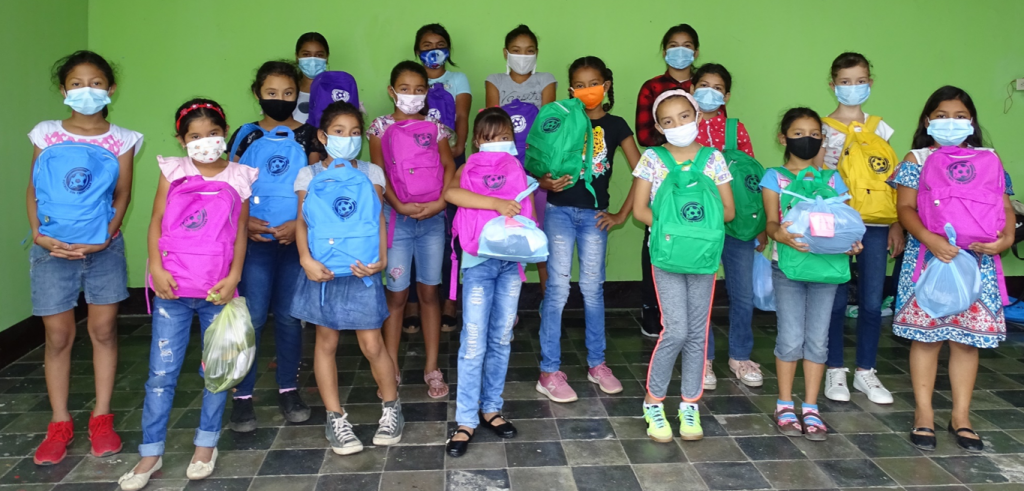
The ELP offers material support for school uniforms and educational supplies to all SWB participants, as well as primary, secondary, and university scholarships to qualifying participants. The ELP operates hand-in-hand with the Team Program, creating a true “student-athlete” experience for participants through additional academic support, educational workshops, leadership development, and school scholarships. In a typical week, a participant will have three soccer practices or games, five days of available tutoring, one team-building activity, and an open invitation to the SWB youth center six days per week from 10 a.m. – 6 p.m. There is no financial cost to participate. In fact, girls who participate in the program receive participation points, which can be exchanged for school supplies and uniforms, equipment, as well as school scholarships, allowing them to contribute to their family’s financial stability.
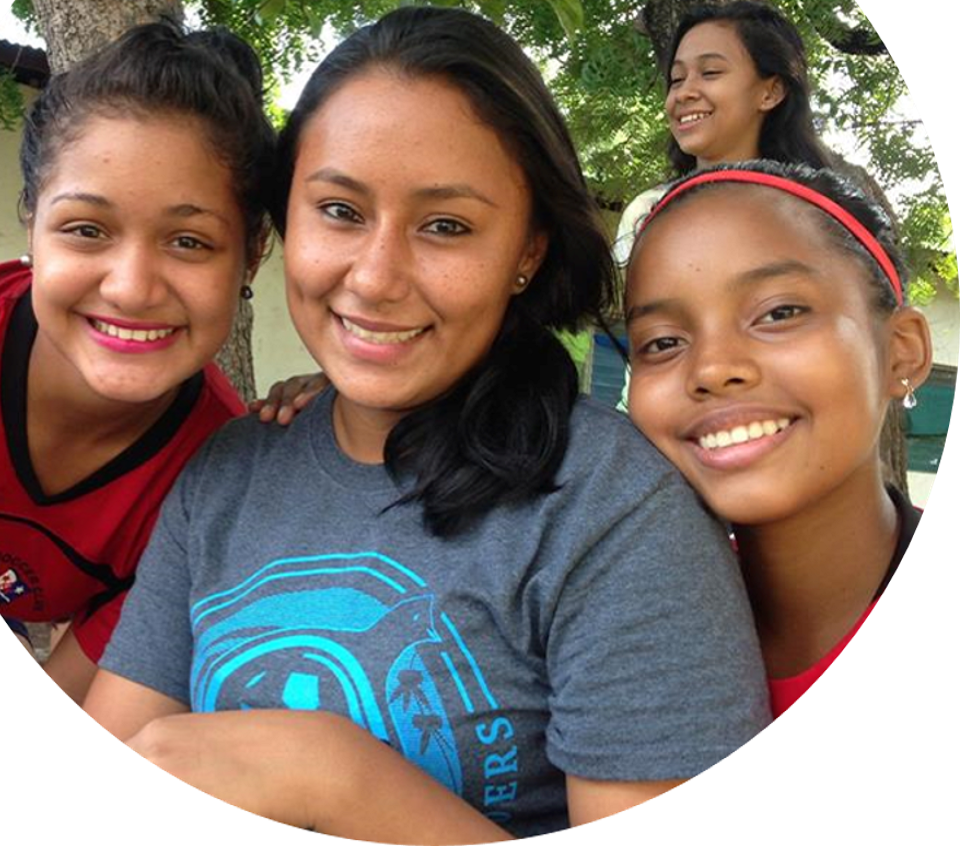 SWB’s holistic approach to youth development is evidence-based, drawing from Positive Youth Development theory, trauma-informed sport design, and best practices in mentoring. As one example, research in mentoring shows that mentoring relationships are most impactful when they are 12 months or more. As a result, SWB invests in head coach positions so that coaches can remain a part of a participant’s life throughout their time at SWB. These bodies of research are the “lenses” of SWB’s program design, informing program structures, hiring, training, activities, design, and implementation.
SWB’s holistic approach to youth development is evidence-based, drawing from Positive Youth Development theory, trauma-informed sport design, and best practices in mentoring. As one example, research in mentoring shows that mentoring relationships are most impactful when they are 12 months or more. As a result, SWB invests in head coach positions so that coaches can remain a part of a participant’s life throughout their time at SWB. These bodies of research are the “lenses” of SWB’s program design, informing program structures, hiring, training, activities, design, and implementation.
The program is open to all girls in the area who are able to access it and meet the age requirement of 5-20 years old, although SWB does not generally allow girls older than 18 to join for the first time. SWB does the majority of its recruitment at public primary and secondary schools in low-resource areas, with an effort to reach every school within walking distance of one of its program fields. Schools are key partners for this program. SWB works closely with school administrators and gym teachers.
Year 1 – Direct impact: 275 girls total (109 on a deeper level through scholarships); Indirect impact: 1,100 family members
Year 2 – Direct impact: 300 girls total (132 on a deeper level through scholarships); Indirect impact: 1,200 family members
UN Sustainable Development Goals
![]()
![]()
![]()
![]()
Questions for Discussion
- In a country with a machismo culture, how do you think girls’ participation in team sports can make an impact on all generations?
- In the United States, sports are seen by some as a distraction from academics, and there is a perpetual debate about financial reward for college student-athletes. Do you think SWB’s program can reframe that to promote education through sports?
- How do you think playing soccer can increase a girl’s agency – both physically and emotionally?
How the Grant Will be Used
Together Women Rise’s grant of $41,500 over two years will help fund the following:
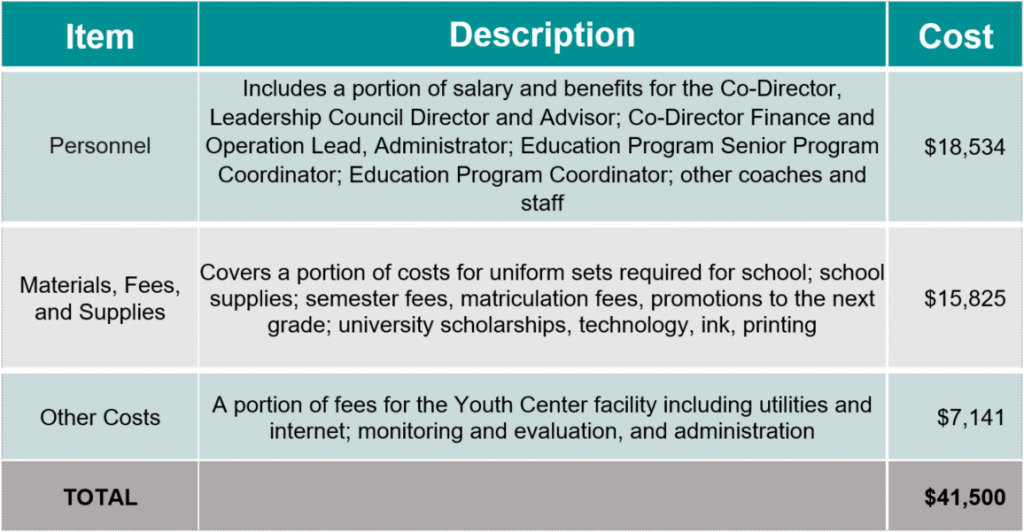
Why We Love This Project/Organization
Soccer Without Borders’ holistic approach to youth development is evidence-based and emphasizes the leadership abilities of the student-athlete. Using soccer as an entry point, impactful programs combat the machismo culture, build trust, and help girls reduce barriers to schooling and social capital with scholarships, financial support, mentoring, and community building. Coaches provide valuable guidance, encouraging teamwork and group effort in building healthy lifestyles, confidence, and competencies, with more girls completing high school and moving on to bigger things.
Evidence of Success
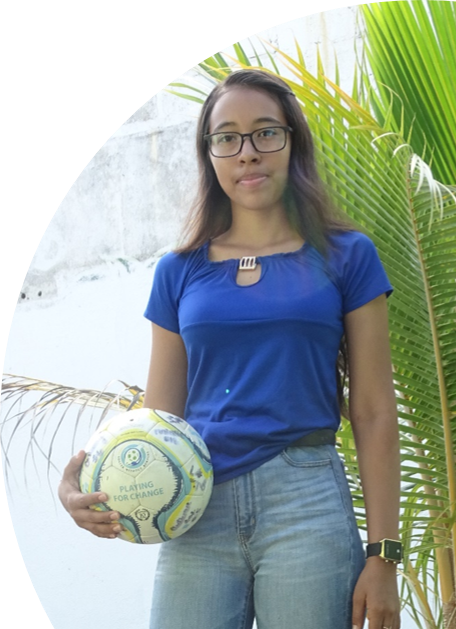 Participants have reduced school absenteeism and increased social self-efficacy when compared to peers at the same school.
Participants have reduced school absenteeism and increased social self-efficacy when compared to peers at the same school.- They have gains in socio-emotional learning measured by the externally-validated High Impact Attribute youth survey.
- There are year-to-year retention rates of more than 75 percent, including 80 percent this past year, for older adolescent youth through middle and high school. By comparison, 70 percent of youth in the U.S. drop out of sport by age 13 (Aspen Institute) and 90 percent of girls in Nicaragua report barriers to playing sport at all (PAHO).
- Evidence shows that every year of schooling beyond fourth grade increases lifetime income by 10 percent, yet in Nicaragua nearly half of girls do not enroll in secondary school (seventh grade). At Soccer Without Borders Nicaragua, SWB has maintained a 92 percent academic advancement rate over the most recent three years, including into secondary school years.
- According to Plan International, Nicaragua has the highest teen pregnancy rate in Latin America – 28 percent of girls are pregnant by age 18. This is a driver of limited educational and professional outcomes for girls, and it drastically shrinks her world and future options. Soccer Without Borders has consistently had less than 1 percent unplanned pregnancy rate in its teen programs.
Voices of the Girls
“Since my daughter joined Soccer Without Borders, she has experienced significant changes in her life to the point that the teacher at her school comments that she has become more sure of herself, social, and participatory in class. I thank Soccer Without Borders because it’s the only organization working with girls that creates a safe space where they can raise their voices.” – Taymara, participant parent
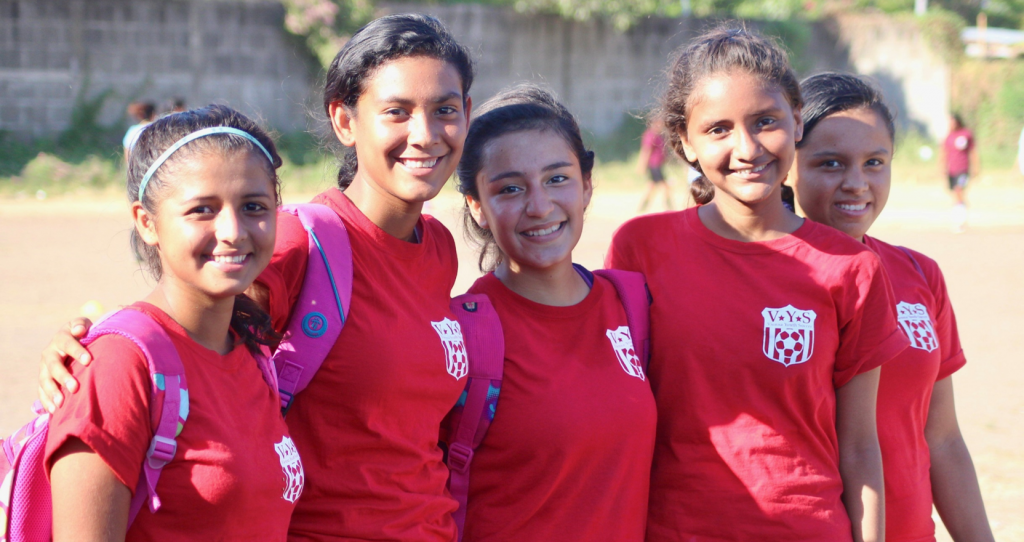
“I am excited because I just accomplished one of my goals. This year I am graduating from my technical college and my parents are very proud of me. Now I am embarking on a new world and hope to have the opportunity to study at university, the major I have always dreamed of, a degree in pharmaceutical chemistry.” – Diana, university scholarship recipient
“I am very pleased that this organization has changed the lives of many girls in Granada. They not only value soccer, but also academics and that is admirable. They make sure girls don’t go down the wrong road and that they have healthy minds. As a teacher, I am happy to see the growth of these young women.” – Mirea, local school teacher in Granada, Nicaragua
“Las Leonas, [an under-12 team], are constantly overcoming all challenges that come their way. They are great people and great athletes. I hope they continue to make sacrifices for their studies and that they always fight for their dreams. May that take advantage of the scholarship opportunity that has been given to many of them and make the best of it.” – Reyna Roblero, coach and SWB Nicaragua graduate and alumna
“It was a huge breather for me when my daughter was awarded a school scholarship three years ago. We receive the benefit of monthly tuition payments to the school, school supplies and uniforms. I have three more children to look after and am a single mother. Both my daughter and I have learned a lot in this time about soccer. She has become more physically fit, and her social relationships have strengthened – before she did not have many friends or people to share with – now she interacts with others more. From the scholarship program she has received support with school materials and with her learning and homework.” – Karla, participant parent
“For parents, the impact has gone beyond having scholarships for their daughters. These days, parents are grateful for the support we provide to create a safe space for their daughters. Girls and young people need to be able to recreate and be distracted in the face of so much tension caused by the pandemic. It has not been easy to adapt to new school systems … The girls are excited to receive scholarships, and they responded by having high attendance and participation in other [SWB Nicaragua] activities.” – Veronica Balladares, SWB Nicaragua Program Co-Director
About the Organization
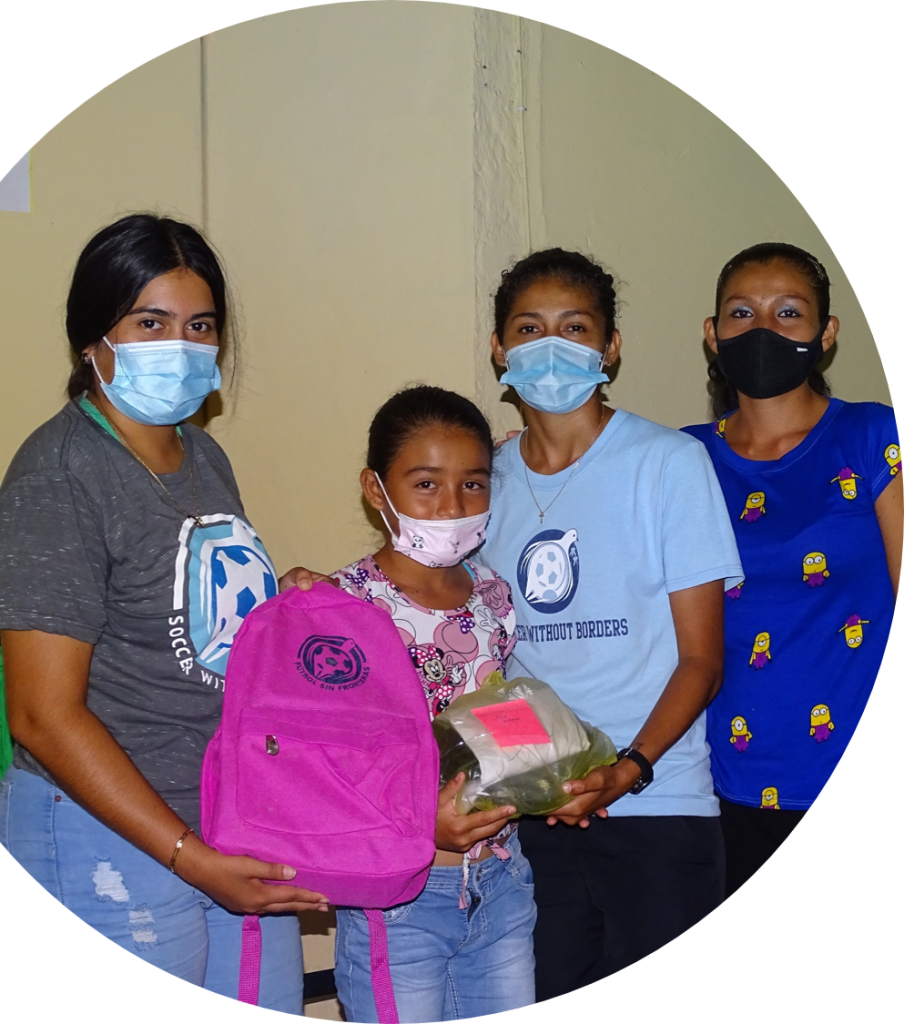 Soccer Without Borders (SWB) was born of a vision to support all young people to reach their inherent potential. Established in 2006, its mission is to use soccer as a vehicle for positive change, providing under-served youth with a toolkit to overcome obstacles to growth, inclusion, and personal success. SWB began its first year-round program in the USA in Oakland, California in 2007, and has directly implemented programs in 12 different countries and eight U.S. states. Currently, it operates year-round program hubs in Granada, Nicaragua; Kampala, Uganda; East Bay Area, California; Greeley, Colorado; Aurora, Colorado; Greater Boston, Massachusetts; and Greater Baltimore, Maryland. It has additional coach training programs in multiple regions in Nicaragua and Uganda as well as the Seattle, WA area, and virtual training programs serving organizations in Europe and Latin America.
Soccer Without Borders (SWB) was born of a vision to support all young people to reach their inherent potential. Established in 2006, its mission is to use soccer as a vehicle for positive change, providing under-served youth with a toolkit to overcome obstacles to growth, inclusion, and personal success. SWB began its first year-round program in the USA in Oakland, California in 2007, and has directly implemented programs in 12 different countries and eight U.S. states. Currently, it operates year-round program hubs in Granada, Nicaragua; Kampala, Uganda; East Bay Area, California; Greeley, Colorado; Aurora, Colorado; Greater Boston, Massachusetts; and Greater Baltimore, Maryland. It has additional coach training programs in multiple regions in Nicaragua and Uganda as well as the Seattle, WA area, and virtual training programs serving organizations in Europe and Latin America.
SWB’s vision is a more inclusive and equitable world through soccer. Programs focus on reaching marginalized youth who might otherwise not have access to extracurricular development opportunities, living in underserved communities that do not have clear pathways and resources to bridge these gaps. In particular, SWB has focused on populations of youth that soccer is uniquely suited to reach, including newcomer refugee and immigrant youth, unaccompanied minors, and marginalized girls. Nearly every girl in the program is playing on her first-ever sports team. In total, SWB serves more than 2,600 youth ages 6 – 20 in its hub programs annually. SWB’s camps, leagues, and tournaments serve more than 3,000 additional youth, while its coach trainings and assistance programs indirectly reach more than 10,000 youth each year. SWB staff leverages the time and talents of more than 400 volunteers, but it aims for every hub program participant to benefit from trained, consistent coaches and mentors.
SWB’s adaptable, team-based program model operates 35 – 45 weeks per year, 3 – 6 days per week, providing under-served youth with the skills and support they need to thrive on and off the field. It includes three main activity areas:
- Soccer play and instruction – SWB provides the equipment, coaching, and transportation needed to help participants of all skill levels pass, dribble, score, win, lose, and learn together in organized practices and games.
- Educational support – SWB provides academic and language development support, high school and college preparation, as well as workshops on drug prevention, wellness, mindfulness, healthy relationships and other topics that are important to participants.
- Community-building – SWB builds community at the family, team, local, and global levels, combating social isolation by connecting its participants and programs to resources and learning opportunities across cultures and beyond borders.
Where They Work
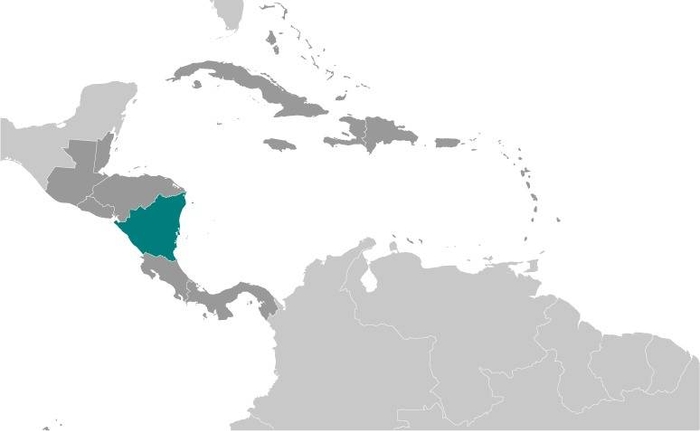
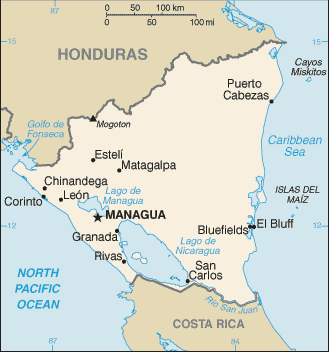
Nicaragua was settled as a Spanish colony from Panama in the early 16th century. Independence from Spain was declared in 1821 and the country became an independent republic in 1838. Violent opposition to governmental manipulation and corruption spread to all classes by 1978 and resulted in a short-lived civil war that brought a civic-military coalition, spearheaded by the Marxist Sandinista guerrillas led by Daniel Ortega Saavedra coming to power in 1979. Nicaraguan aid to leftist rebels in El Salvador prompted the US to sponsor anti-Sandinista contra guerrillas through much of the 1980s. After losing free and fair elections in 1990, 1996, and 2001, former Sandinista President Daniel Ortega was elected president in 2006, 2011, 2016, and most recently in 2021. Democratic institutions have weakened under the Ortega administration as the president has garnered full control over all branches of government, especially after cracking down on a nationwide pro-democracy protest movement in 2018.
Nicaragua is the poorest country in Central America and the second poorest in the Western Hemisphere and has widespread underemployment and poverty. Textiles and agriculture combined account for nearly 50 percent of Nicaragua’s exports. Beef, coffee, and gold are Nicaragua’s top three export commodities.
- Population: 6.3 million (2022 est.)
- Population below the poverty line: 24.9 percent (2016 est.)
- Median age: total 27.3 years
- Birth rate: 16.62 births/1,000 population (2022 est.)
- Death rate: 5.17 deaths/1,000 population (2022 est.)
- Mother’s mean age at first birth: 19.2 years (2011/12 est.)
- Maternal mortality ratio: 198 deaths/100,000 live births (2017 est.)
- Infant mortality rate: 19.09 deaths/1,000 live births
- Life expectancy total population: 74.78 years
The literacy rate for the total population is 82.6 percent and is about equal for men and women (2015). Unemployment in youth ages 15-24 is 8.5 percent, with 6.4 percent of men unemployed and 12.9 percent of women unemployed (2014 est.).
A closer look at sports as a tool for social change
As Nelson Mandela said, “Sport has the power to change the world.” Soccer Without Borders is showing how participating in a sport can enhance a girl’s self-confidence, promote gender equality, and build community. It is using sports as a tool to keep girls in school to complete their education so they may obtain personal success, contribute to their families, and to their communities.

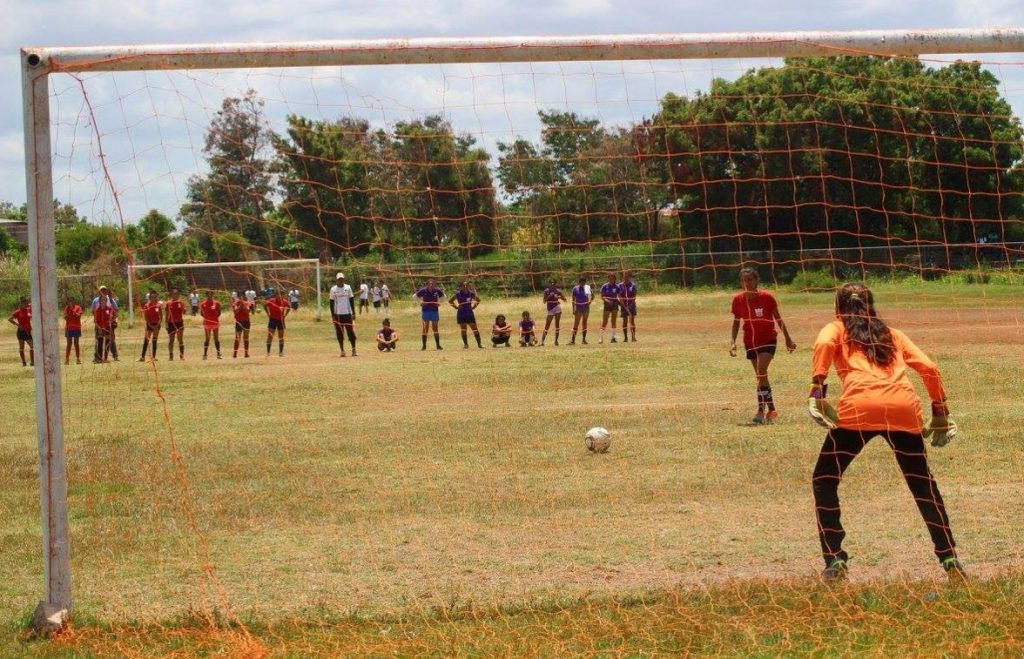
Sport has the power to change the lives of the most marginalized girls and young women. It has the ability to drive gender equality by fostering teamwork, self-reliance, resilience and confidence, and has a multiplier effect on their health, education, and leadership development. It contributes to self-esteem, builds social connections, and challenges harmful gender norms.
Globally, athletic competition stimulates a collective spirit that enhances community participation among children, adolescents, and adults. The United Nations Convention on the Rights of the Child asserts the fundamental right of children to “engage in play and recreational activities.” The inclusion of this article illustrates the international recognition of sports in child and adolescent development. Attracting youth participation and development through a tool such as sports is a powerful investment that can be made in countries where girls and women are marginalized.
Led by UN Women, the Sport for Generation Equality Initiative is an invitation for the sports ecosystem to be a part of a powerful multi-stakeholder coalition to make gender equality a reality in and through sport. The coalition consists of governments, United Nations organizations, sport for development and peace organizations, civil society, sport federations, event organizers, leagues, teams, brands, marketers, media, and sport influencers. It multiplies impact for gender equality and women and girls’ empowerment by enabling learning from one another and accelerating efforts to promote women’s leadership and gender equality in governance models; prevent and respond to gender-based violence; undertake to close the gap in investment in women’s sports and promote equal economic opportunities for women and girls; promote women’s equal participation and bias-free representation in media, and provide equal opportunities for girls in sports, physical activity and physical education.
Sports can also play a vital role in addressing and raising awareness of key societal issues. It can be an excellent common denominator for tackling cultural barriers in society. For example, The International Olympic Committee is taking strides towards messages of tolerance and inclusion. Manchester United Football Club partners with Stonewall, a UK-based LGBTQ+ national charity to promote an inclusive work environment and training programs for its employees. And in the United States, the U.S. Women’s National Team commanded a powerful platform from which to challenge pay inequality. After years of being far more successful than the men’s team, and often bringing in more revenue than their male counterparts, the team sued to challenge the inequity in pay with the men’s team. After many setbacks, U.S. Soccer agreed to pay male and female players equally going forward.
Source Materials

